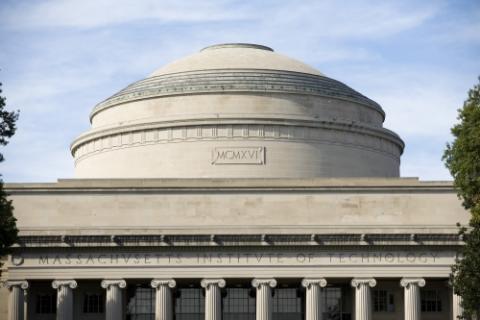
The Buoy Stone was built in celebration of MIT's 2016 campus centennial, marking 100 years since the Insitute moved across the Charles River from Boston to Cambridge. This megalith is the second in a series of projects by lecturer Brandon Clifford that investigates how knowledge from the past — particularly focusing on mass, weight, and gravity — can inform contemporary architectural practice.
"One of the greatest mysteries of Megalithic era construction surrounds transportation from quarry to site," explains Clifford. "It is thought that the Bluestones of Stonehenge were floated up the river Avon with animal bladders. What would it mean to float a stone today?"
"The Buoy Stone is calibrated to rest on its side for a horizontal commute, then transform into a vertical figure once pumped full of river water," Clifford adds.
In addition to Clifford and associates at Matter Design, students who worked on the project include: Myung Duk Chung, Maya Shopova, Tyler Swingle, Victor Leung, Ammar Ahmed, Borislav Angelov, Xhulio Binjaku, John Fechtel, Daniel Garcia, Max Jarosz, Zain Karsan, Alexander Marshall, and Paul Short.
Submitted by: MIT School of Architecture and Planning | Photo by: Justin Knight.
Have a creative photo of campus life you'd like to share? Submit to Scene at MIT.


